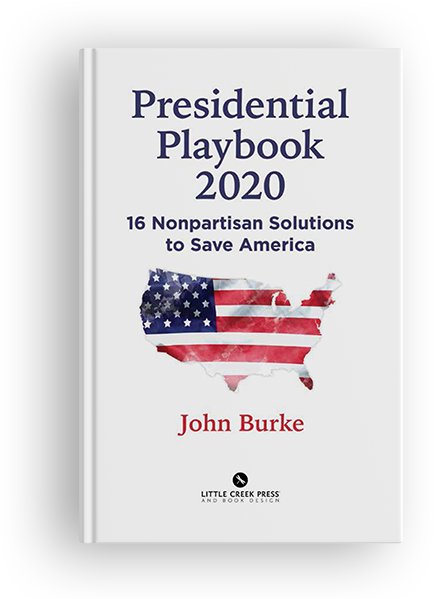Leadership Scorecard 2020
Less than four months from now, We, the People, will elect the president of the United States — the leader of our nation and, historically, the leader of the Free World. Unfortunately, we will have to endure three presidential debates where reporters will ask questions, trying to generate headlines, and the candidates will give answers, trying to avoid any mistakes. Unfortunately, we will learn very little about the plan that the two men who are applying for the most important job in the world have. Because ….. to date, they don’t have a real plan based on the facts, and they never explain how they are going to pay for the (long list of proposals on their campaign websites – proposals designed to make their supporters happy but without requiring any type of sacrifice to achieve their goals.) political plan (makes all of their supporters happy and never contains anY sacrifice) that they always post on their websites.
How should you decide who will be the best leader for our nation? Over the past few years, I have pondered this question at Trek. After listening to the business author and consultant Jim Collins talk about leadership, we came up with a scorecard that we use to evaluate almost 400 leaders at Trek. There are four attributes that make a great leader in business, sports, or politics:
- Will. Gets tasks done with a sense of urgency. Takes personal responsibility and does not blame others. Tackles the hard things and delivers results.
On the afternoon before the D-Day invasion, then-General Dwight D. Eisenhower handwrote a note accepting responsibility for the decision to launch the invasion and taking full blame, should the effort at Normandy fail.
All leaders make mistakes, great leaders take responsibility.
Question for the candidates: Can you give me two examples during your service as president or vice president where you have taken responsibility for something that has gone wrong and what did you learn?
- Humility. Cares more about the front of the jersey than the back. Is a learn-it-all, not a know-it-all.
George H.W. Bush earned the nickname “Have-Half” as a kid for constantly offering to share what he had with others. He always believed that the cause was larger than he was. As political commentator David Brooks wrote in his book, The Road to Character, Bush’s mother had taught him long ago not to brag. So, during his 1988 campaign for the presidency, Bush was reluctant to talk about himself. His staff urged otherwise; after all, he was running for president. When eventually Bush gave in, his mother called him, the next day. “George, you’re talking about yourself again,” she said.
Question for the candidates: Do you think that humility is an important trait for a president, and why – or why not?
- Creates The Best Team on the Field. Makes great hiring decisions.
Abraham Lincoln hired the “Team of Rivals” for his cabinet — Salmon Chase, William Seward and Edward Bates – all of whom had competed against him for the Republican presidential nomination. George Washington had Thomas Jefferson and Alexander Hamilton in his cabinet.
You are only as good as your team, and any person running for the presidency should share his or her thoughts on who they would appoint to their cabinets.
Question for the candidates: How well do you do at hiring the best talent? What type of people will you put in your cabinet if you are elected?
- Vision. Sees something bigger than the barn.
Steve Jobs always saw something bigger at Apple. When he came back to Apple in 1996, the company was six weeks away from bankruptcy. Jobs had a simple, clear vision for the future and he turned Apple into the most valuable company in the world. Franklin Roosevelt always saw something bigger when he came up with the Lend Lease Act to provide military aid to our allies during World War II, or when he introduced a host of public works and social welfare programs during the Great Depression. John Kennedy gave us the Peace Corps, and he captivated the nation with his challenge to send a man to the Moon and return him safely to Earth before the end of the 1960s.
Great leaders see things that others don’t.
Question for the candidates: What big ideas do you have for the country if you are elected in November?
Score each candidate 0-5 on each of the leadership characteristics. Total it up and that should be your candidate.
